


SOIL -
"Mined Soil Materials of Guangzhou Metro Project" Regeneration Experiment
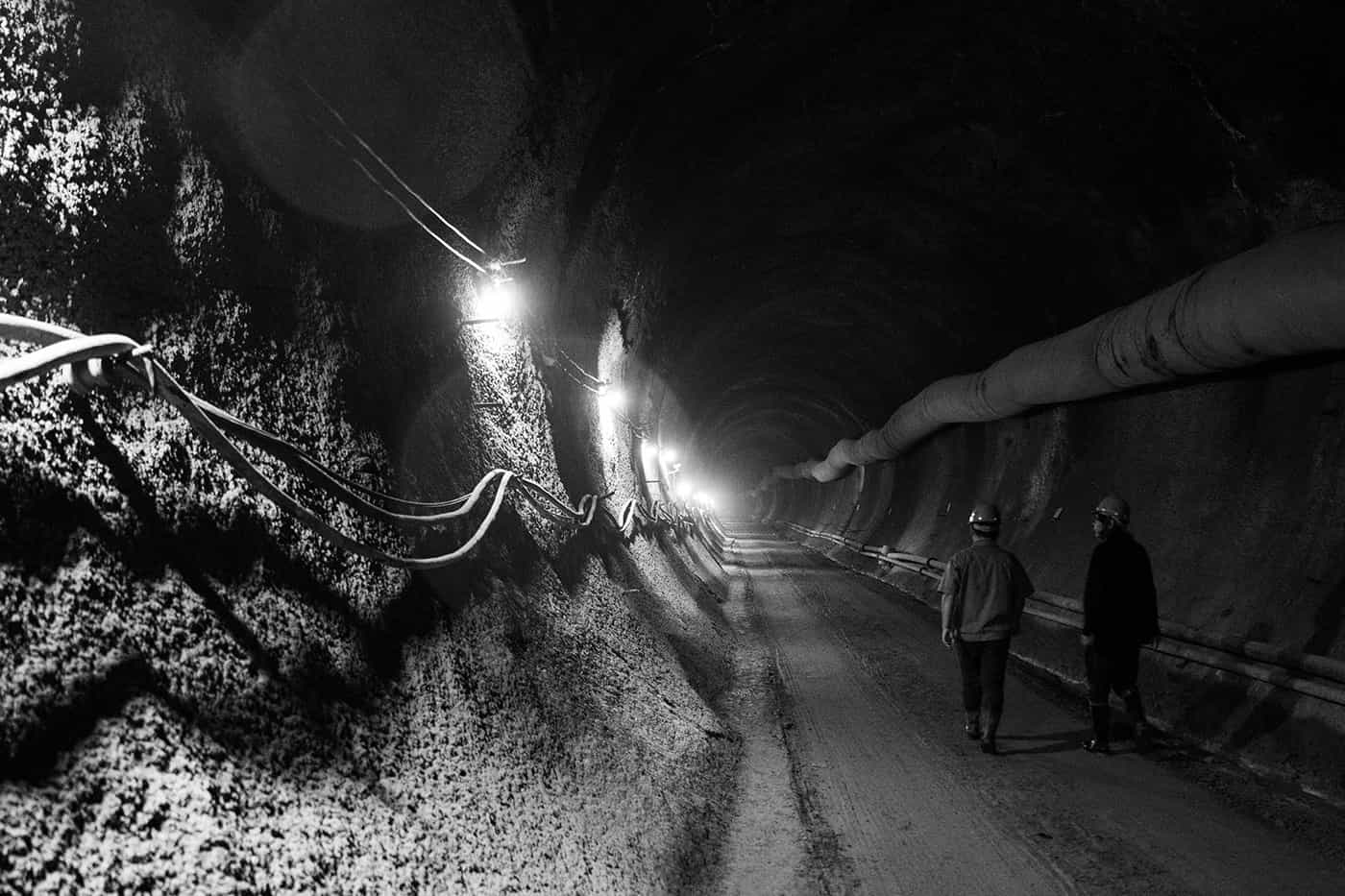
Observe the construction and operation of urban underground space 40 meters under the ground and feel the pyramid-like noble beauty processed by infrastructures of information age.
Teamed up with Guangzhou Metro Museum, BENTU carries on a regeneration experiment using the soil wastes from the metro project.
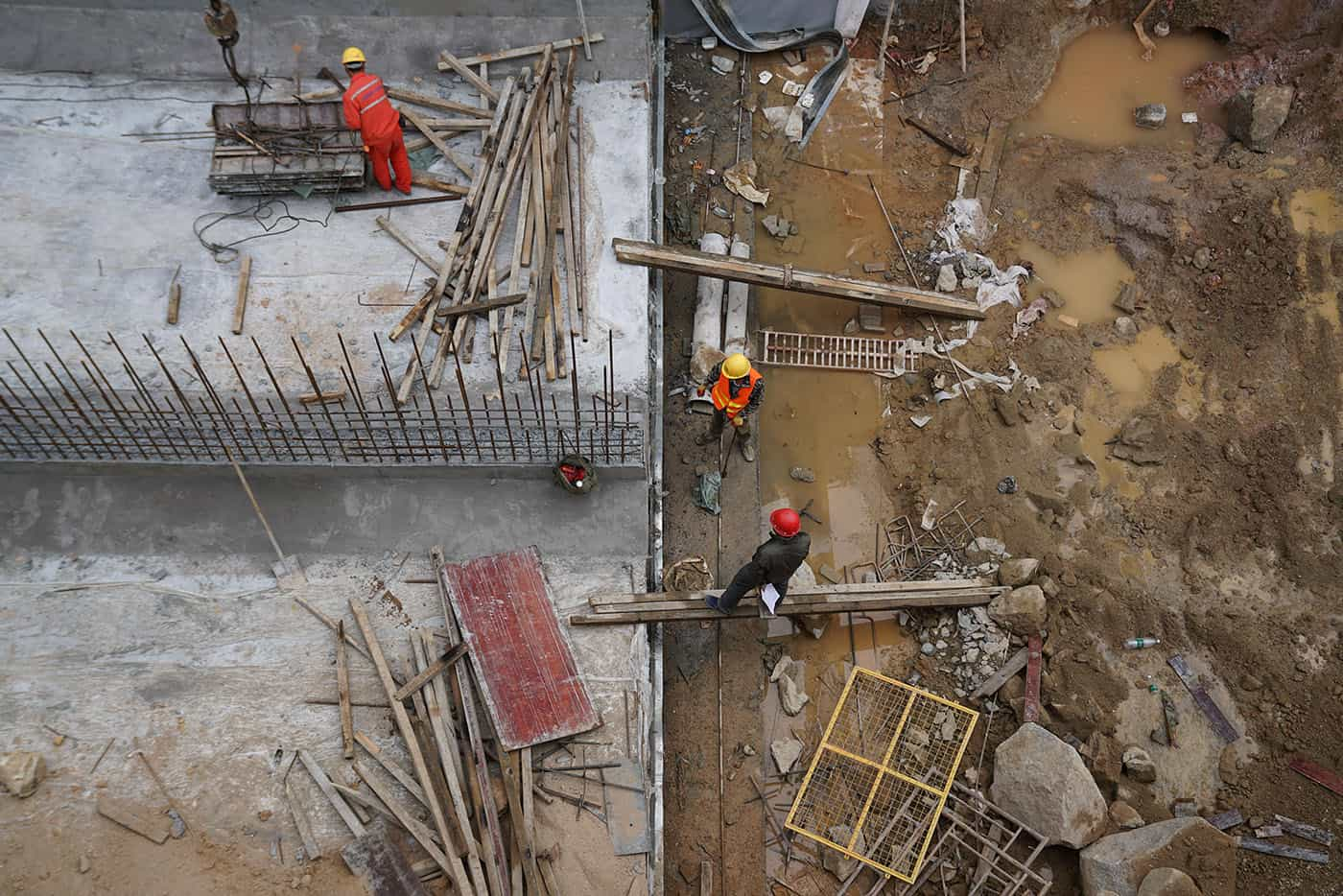
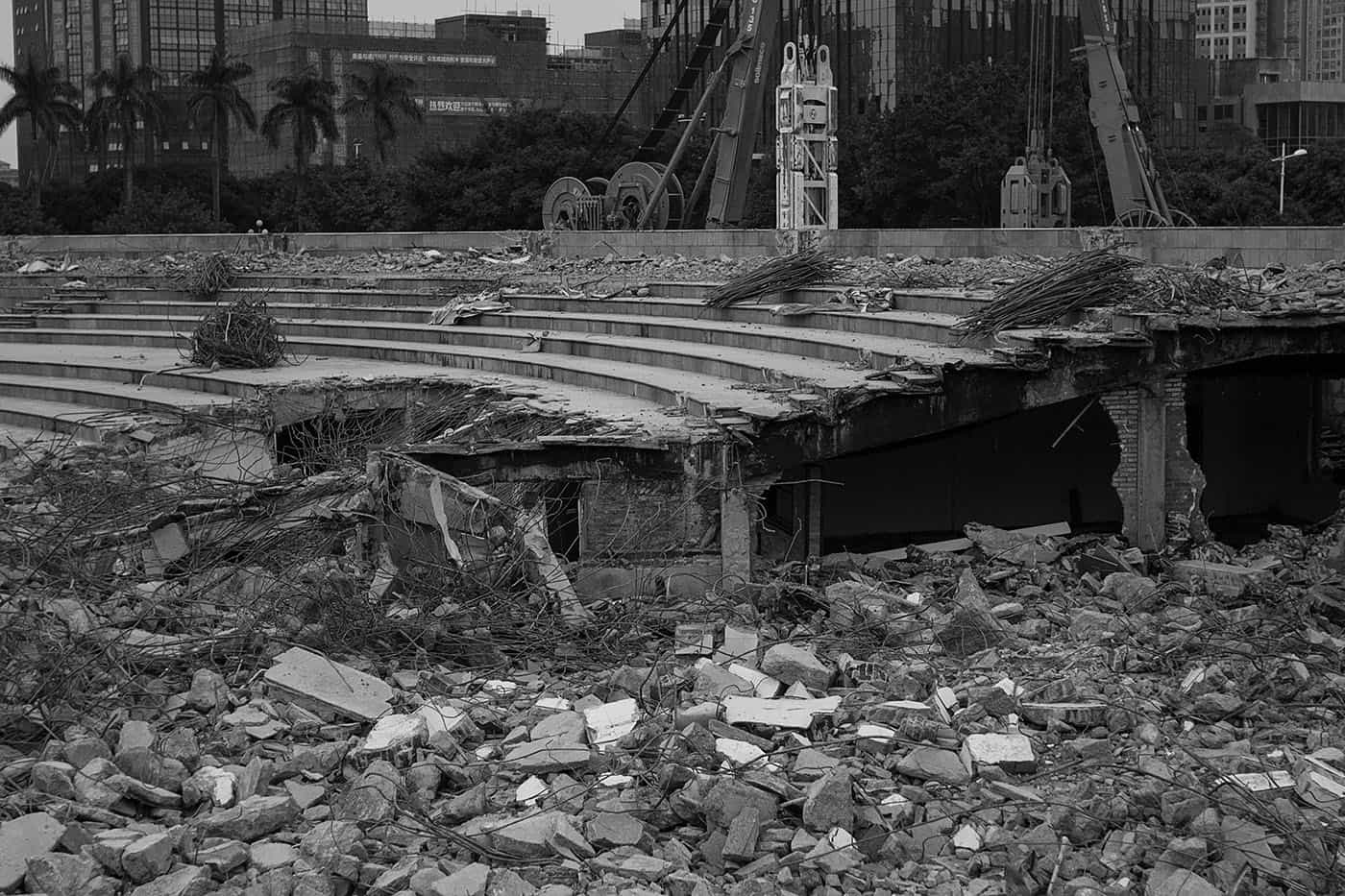
Under the circumstance of globalized economic development, the emergence of metro plays an important role in easing the great population movement pressure.
As an important product in the process of human’s pursuit of unrestrained mobility, metro can meet the mobility demand arising from rapid globalized economic development which has become an important means of transportation for people living in modern society. Located in China where the world's largest population resides, Guangzhou metro sees a constant daily average traffic of more than 7.55 million passengers—one of the highest across the country.
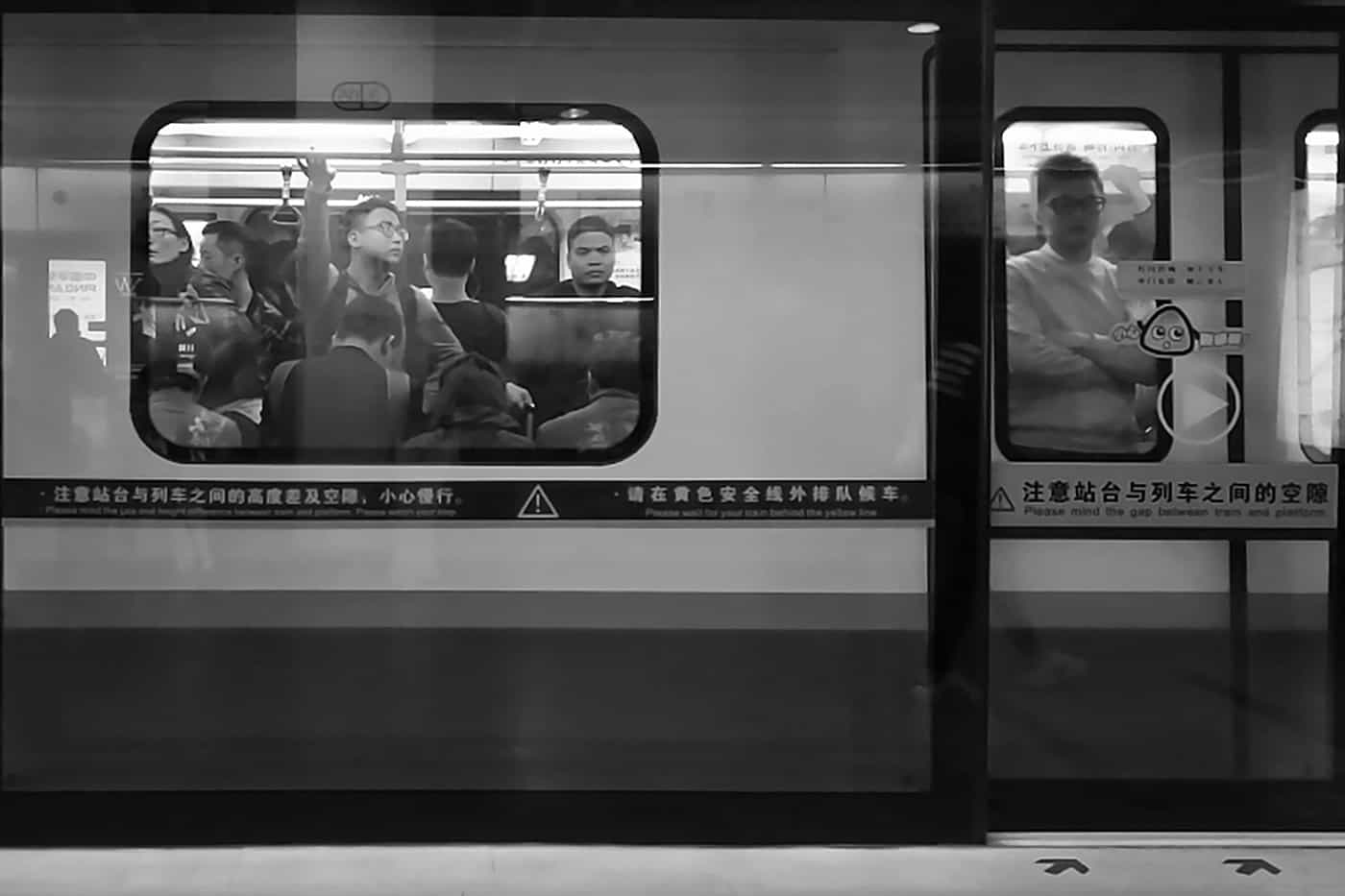
A new culture has been formed on this world's fastest-growing metro construction land.
For one thing, the new transport space, which was developed underground and has been operating maturely, allows for regional and even global movement of people and goods, and is also involved in the social production chain. The realization of the rapid movement in the region has enabled people of different ethnicities and geographies to come into contact with one another.
For another, metro has become a universal demand that has a profound impact on personal experiences; it redefines our relationship with work, leisure, education, health care, lifestyle, security, and rights and interests.
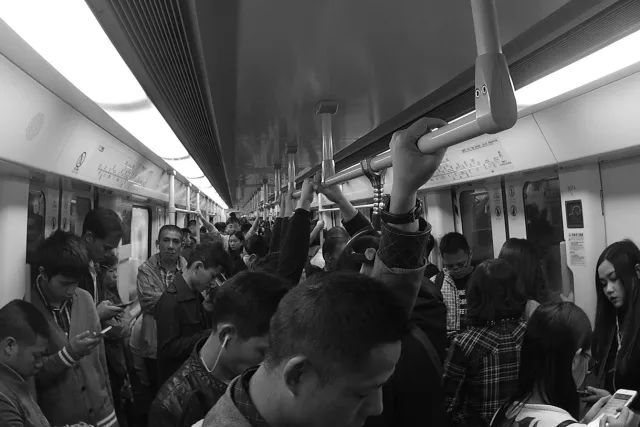
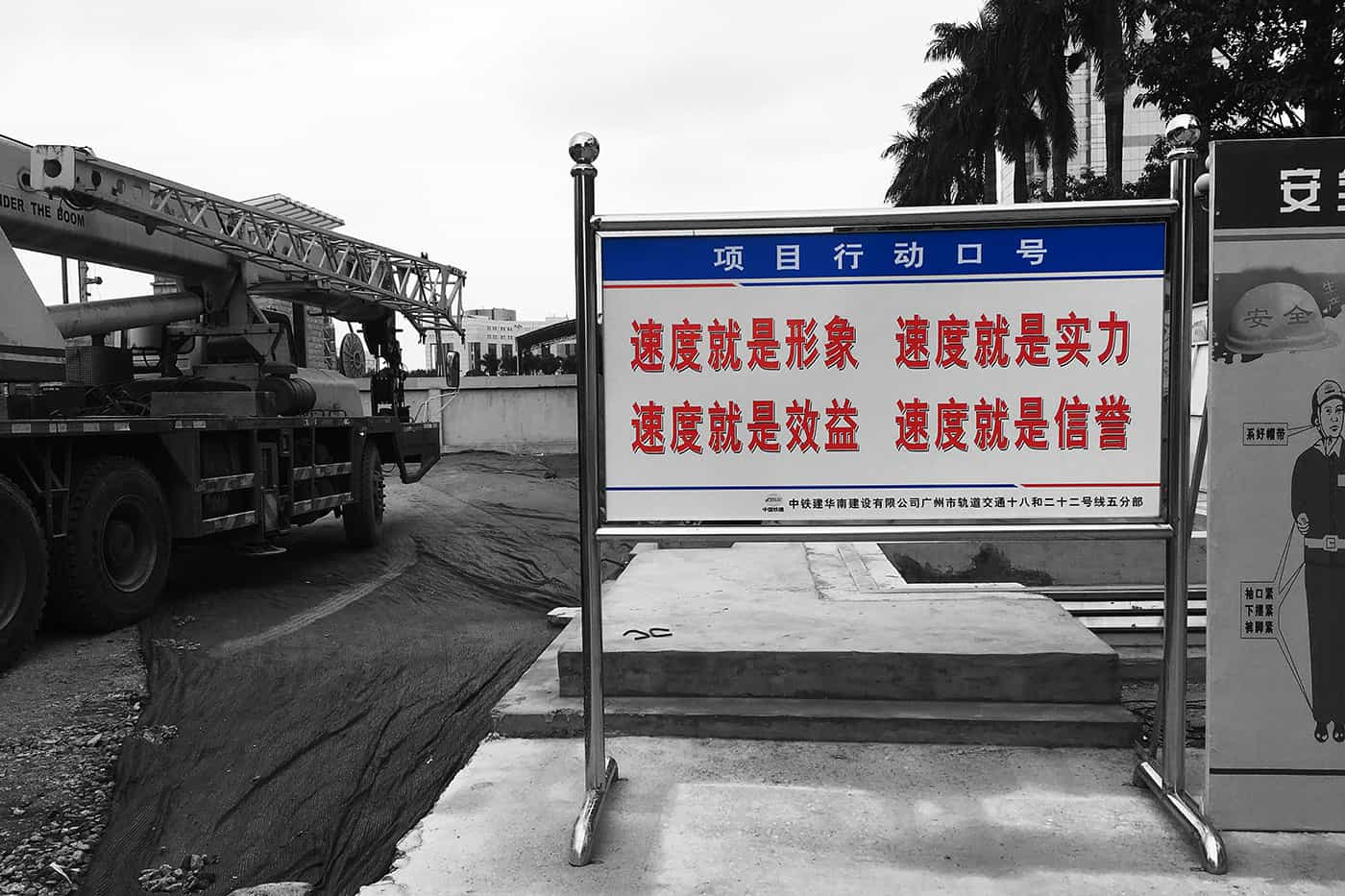
People have realized that it is not just a tremendous transformation from a transportation perspective, but also a transformation of space production —
social spaces expand, and cultural spaces compete. The natural dwelling relationship –that is, the emotional connection between human and land- is shattered by the development of transport technology and further torn apart by the distilled “present": how does one comprehend and balance this anxiety and the conflict?
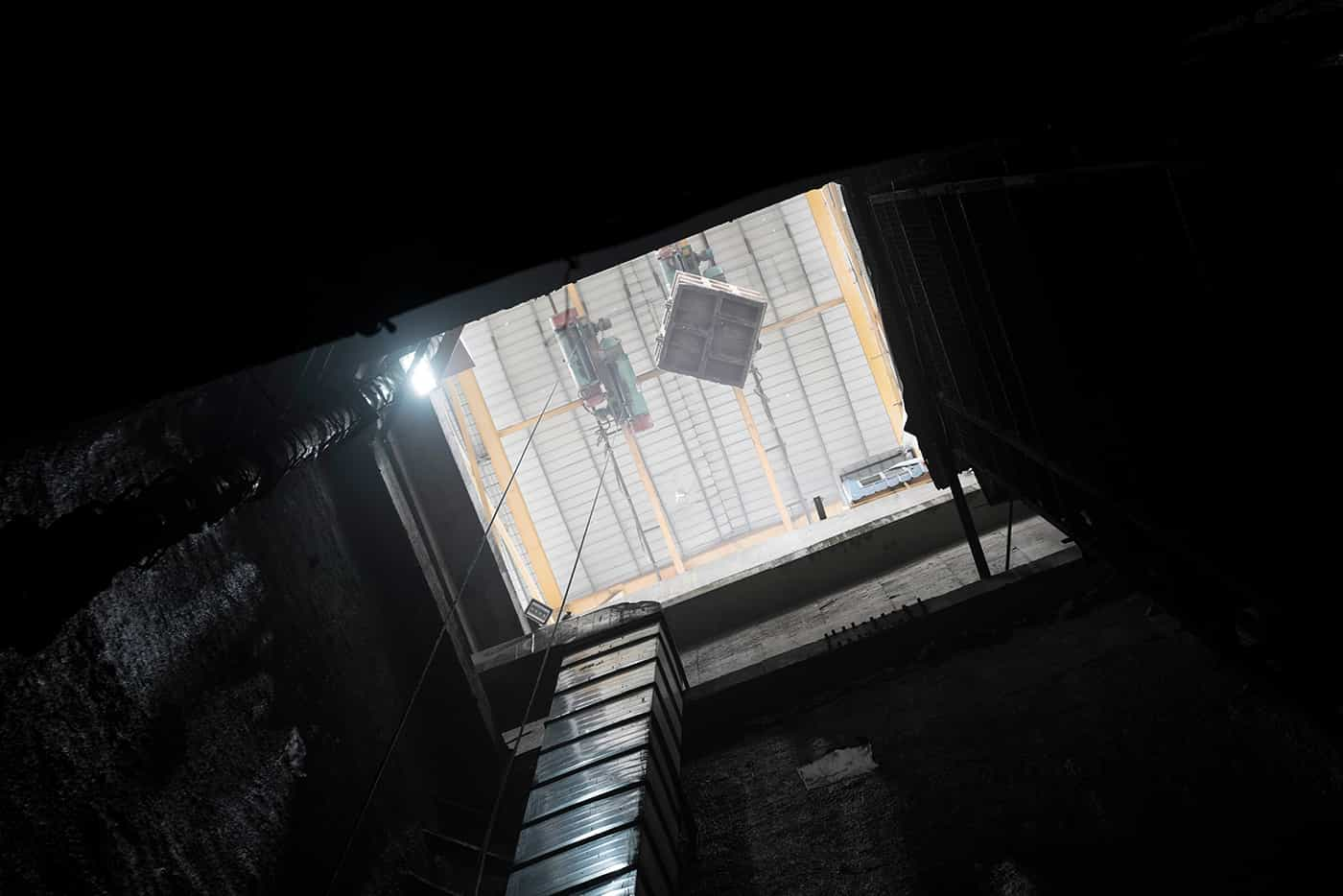
Walking through the underground construction tunnels and metro compartments 40 meters underground in Guangzhou, we are re-examining the relationship between human and land.
There are more than 200 metro construction sites in Guangzhou. Take Shuixi-station construction site of Line No.7 for example, the amount of underground soil wastes generated daily, which are mainly raw soil mixed with large boulder stones, can reach 200 to 300 tons. Guangzhou’s metro coverage has doubled in 3 years, which has led to the generation of huge amounts of underground construction soil wastes. By constantly experimenting with different ways to recycle the disposed waste, we are trying to find a balance that can allow humans to re-establish a valuable and dignified connection with the land.
Exploration of stone materials and boulder stones
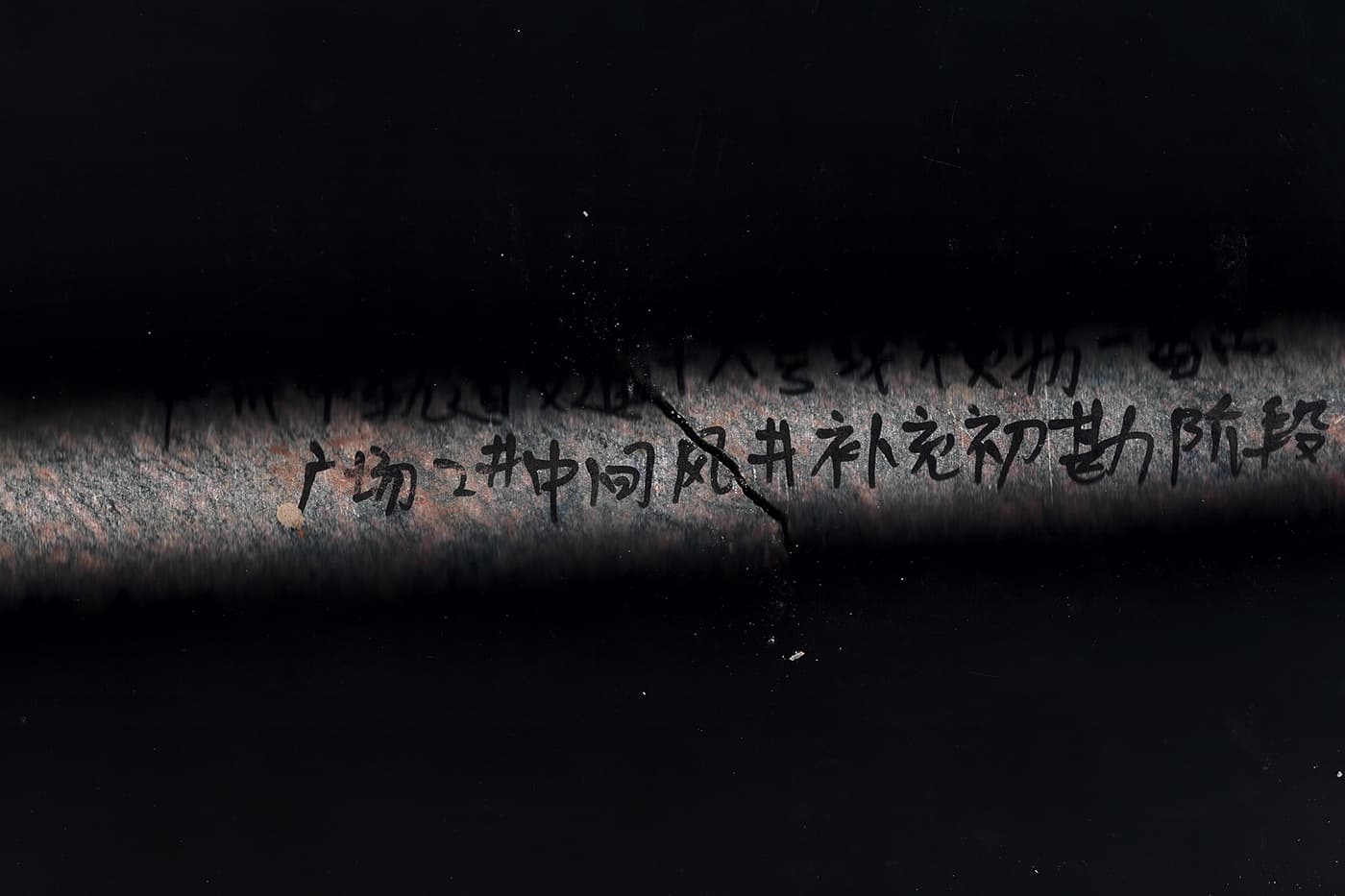
Geologic Prospecting Record of Line 18 _Hengli And Panyu Segment
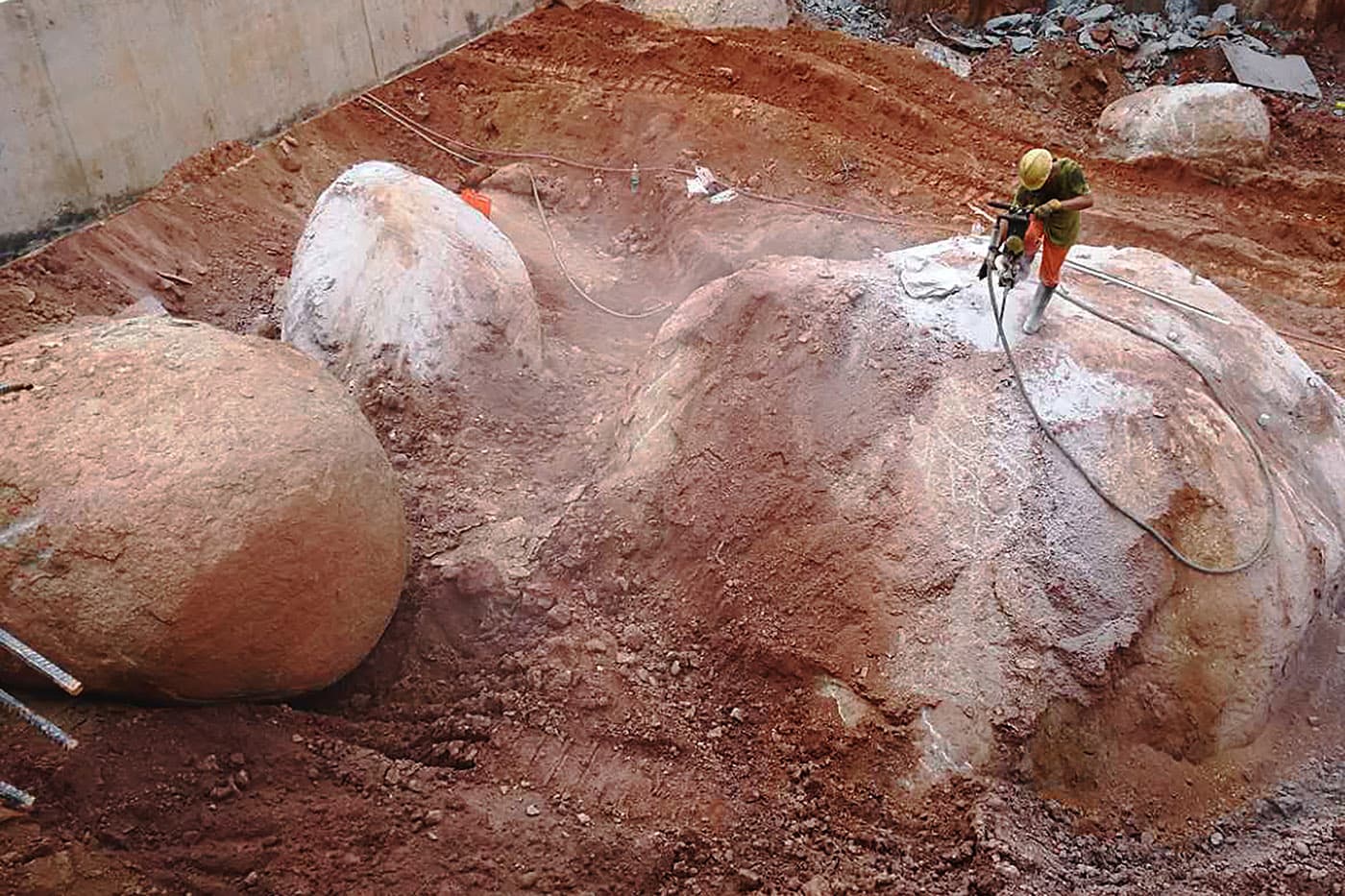
Subway construction site - Boulder Stone
In the course of Guangzhou metro construction, all sorts of stone materials are produced, such as sampling stones used for exploratory purposes; and large mined boulder stones used in tunnel construction, including shale, sandstone and granite of various weathering degrees. Using 50% ultra high performance concrete (UHPC) mixed with 50% crushed rock mass, we produce terrazzo city furniture that conforms to contemporary aesthetics.
The volume and scale of the urban public space furniture system can utilize renewable stone materials to reduce environmental problems and improve urban space aesthetics.
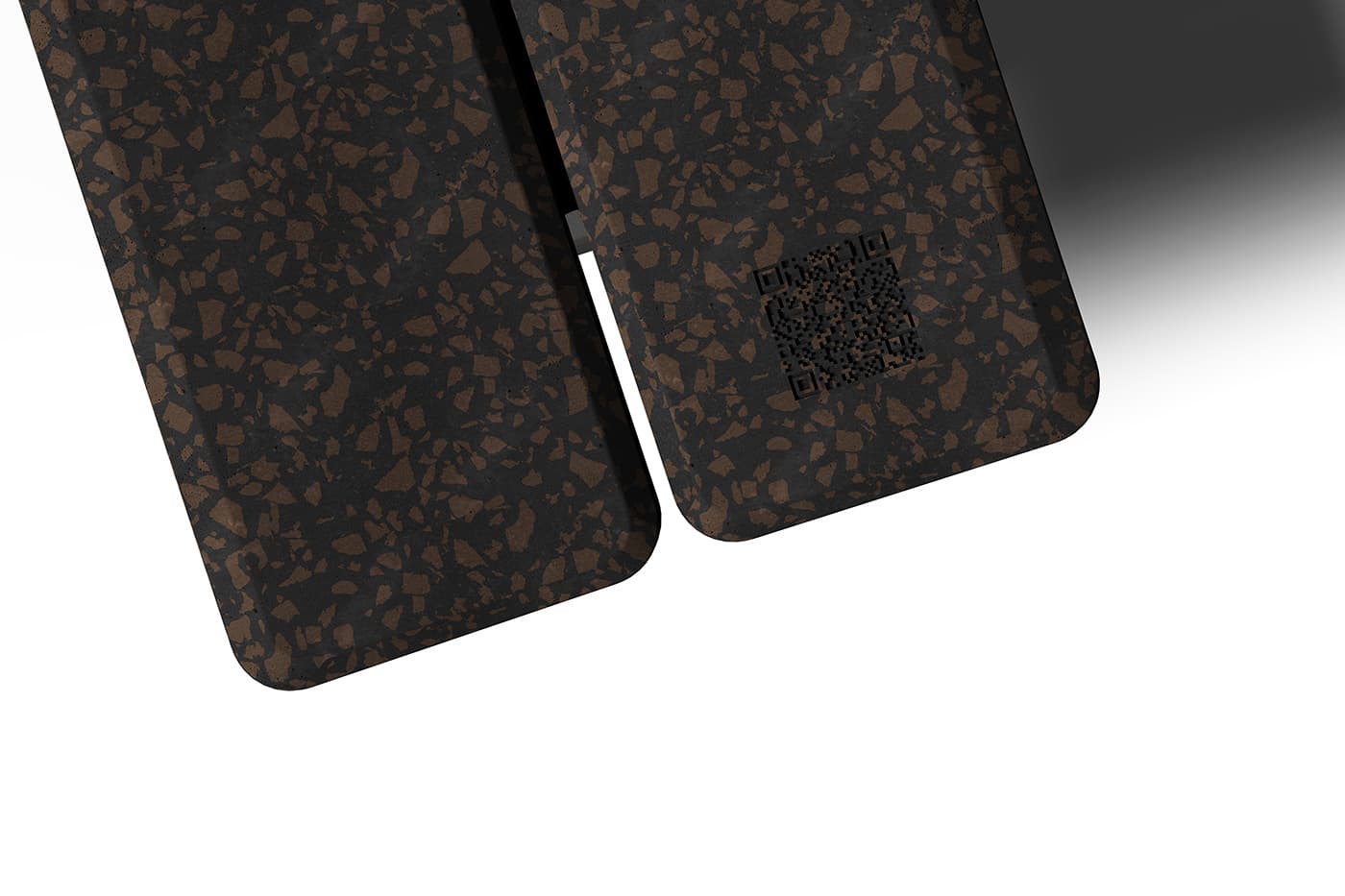
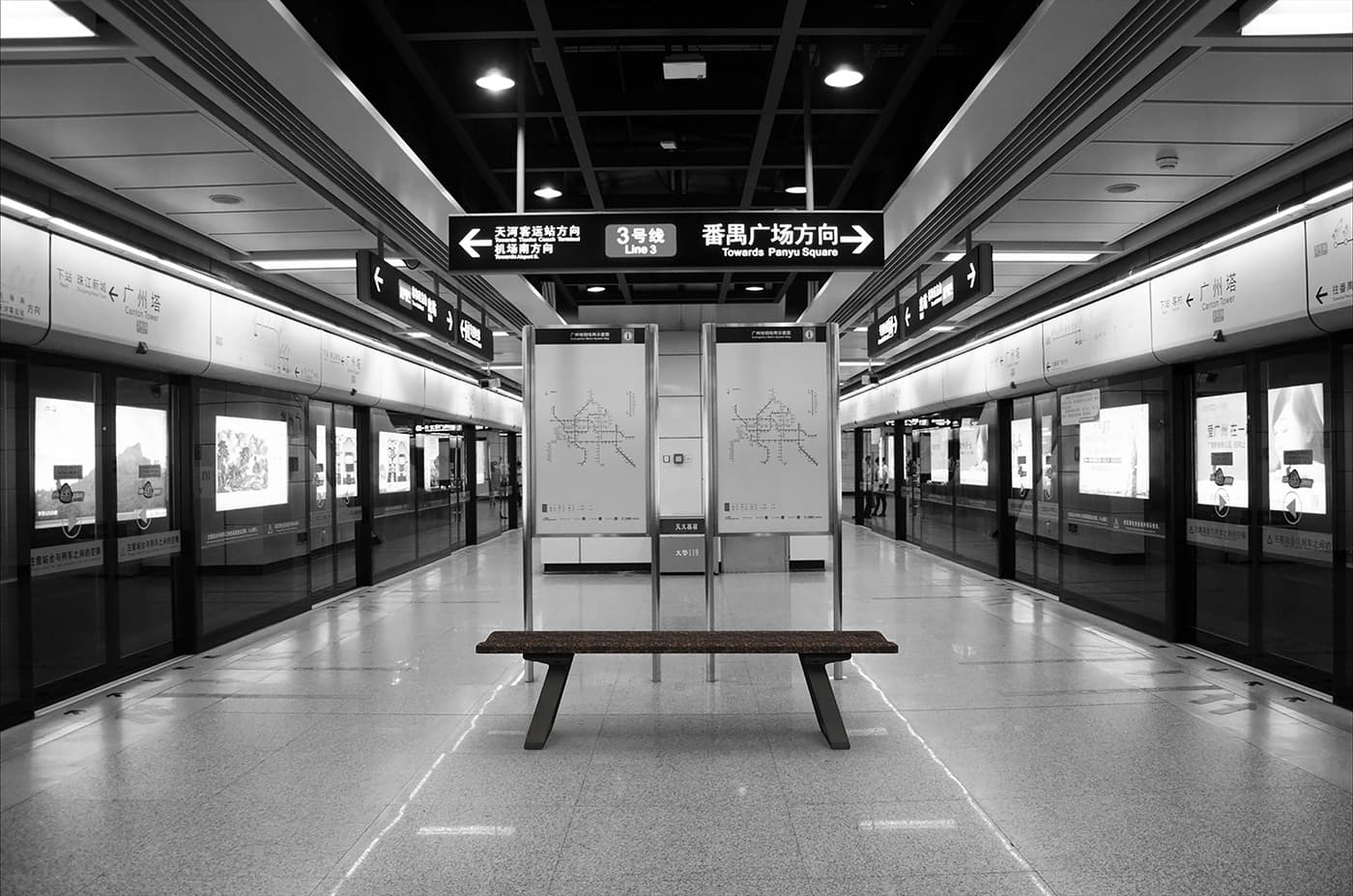
Soil material
Soil material is the most common waste in the course of metro construction, which also accounts for the largest proportion. It is hard to grow vegetation because of low fertility. Using the red earth from the Panyu-Square-station construction pit, we carried out a soil material regeneration experiment.
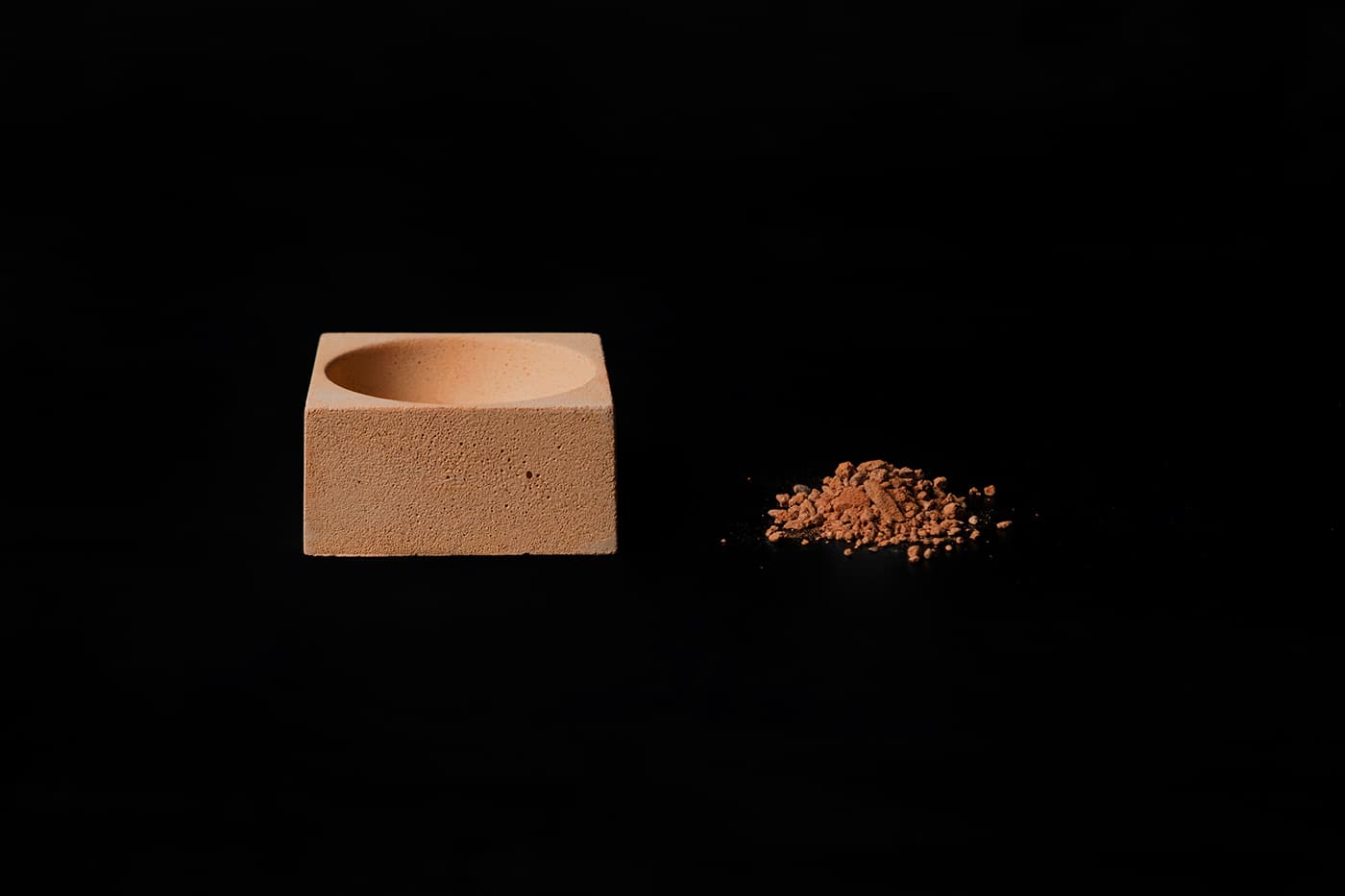
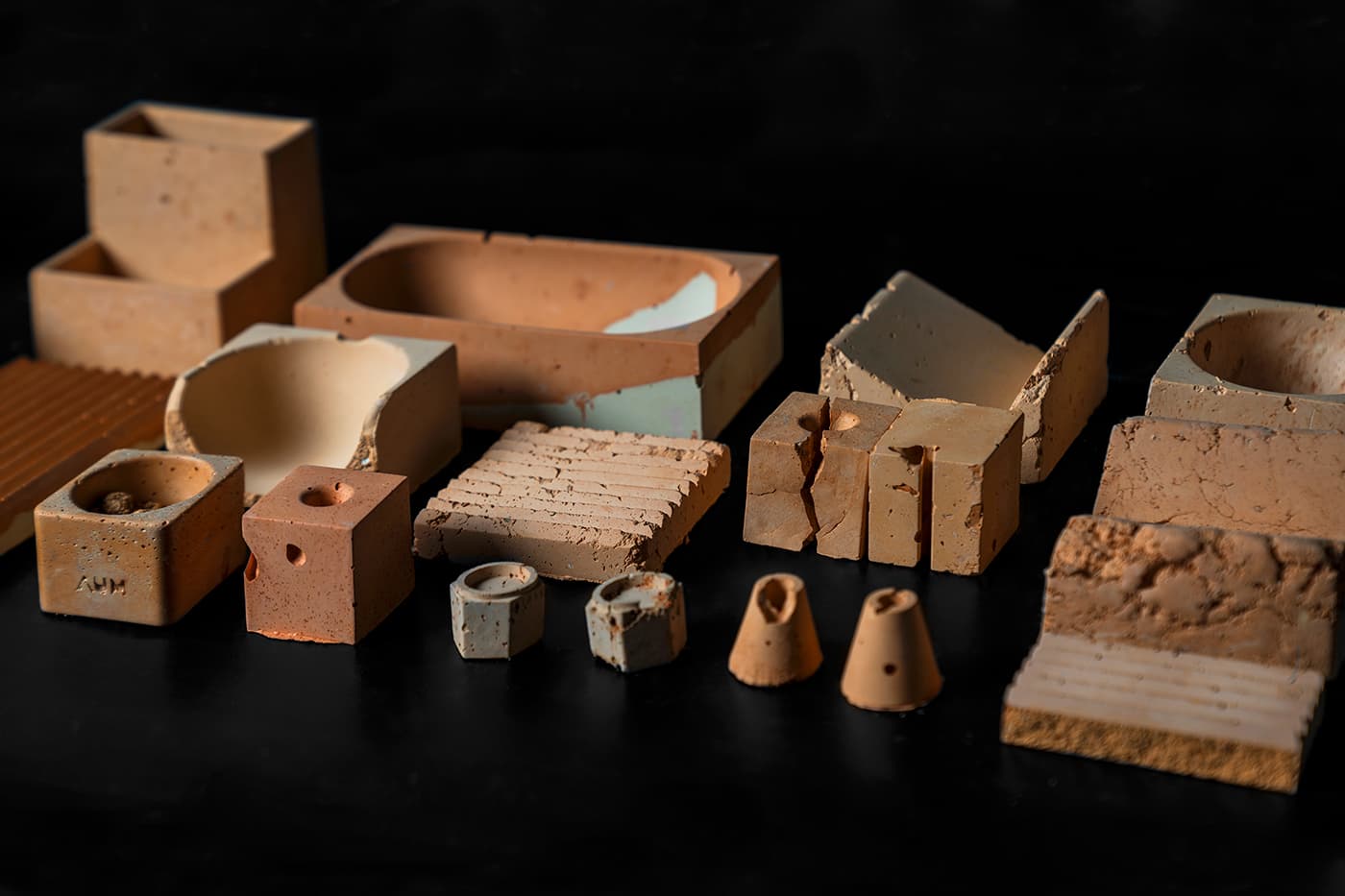
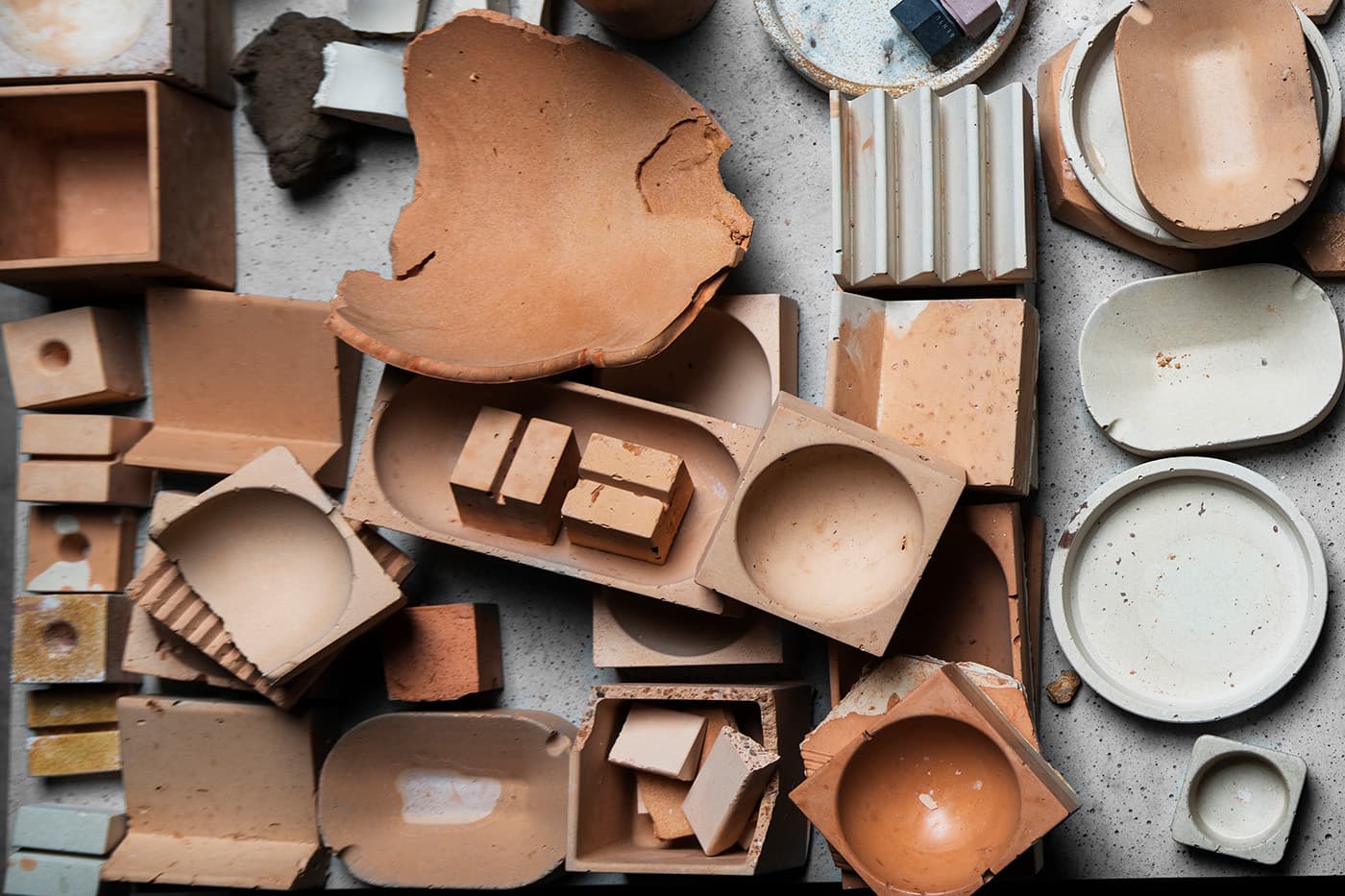
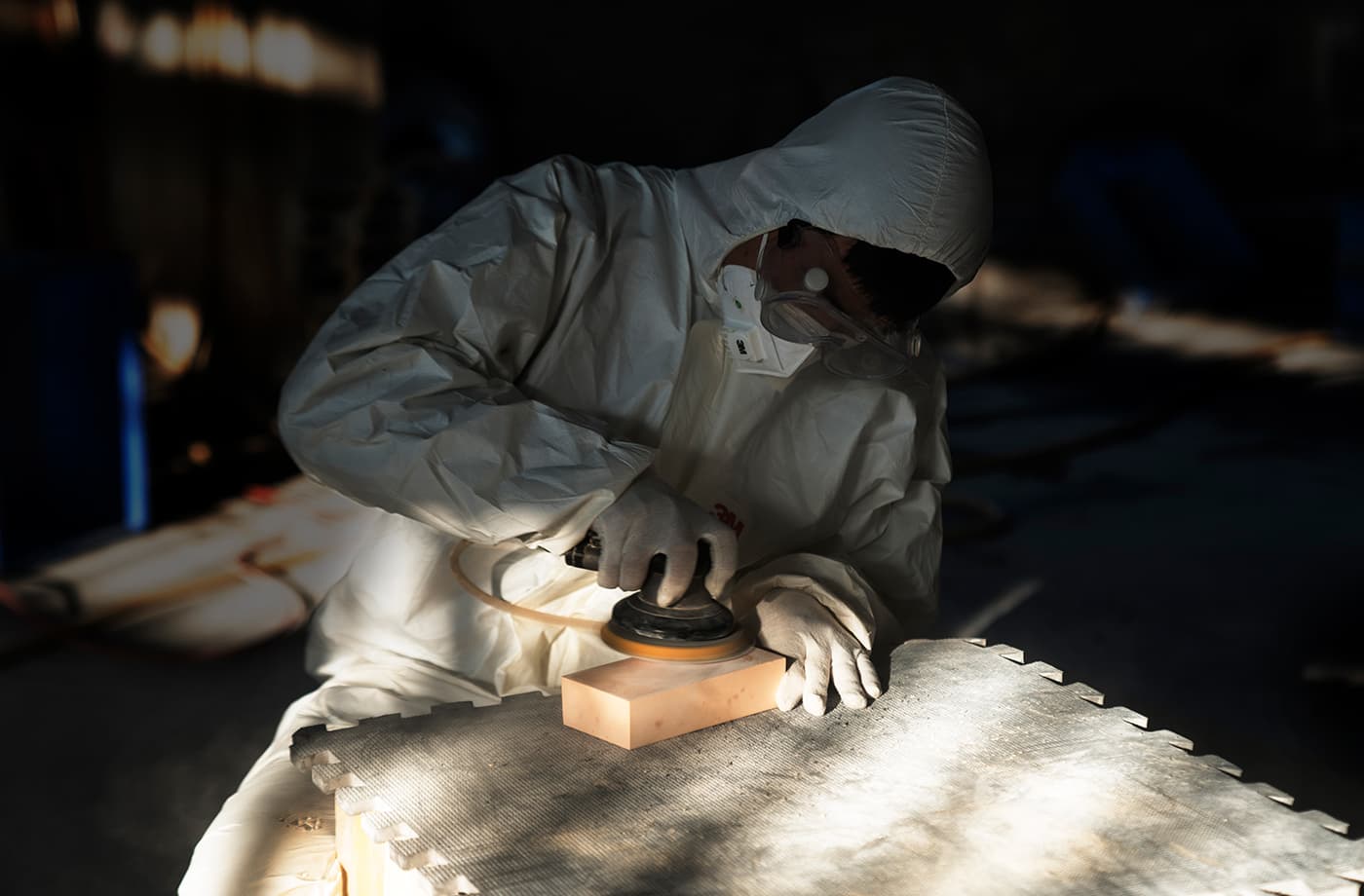
In order to make up for the shortage of strength and ensure it meets the demand of daily use, we’ve conducted the test repeatedly. Our sole object is to allow it to be able to be disposed in the wild after use and degraded to the form of soil easily without causing any harm to the nature while ensuring the material strength at the same time.
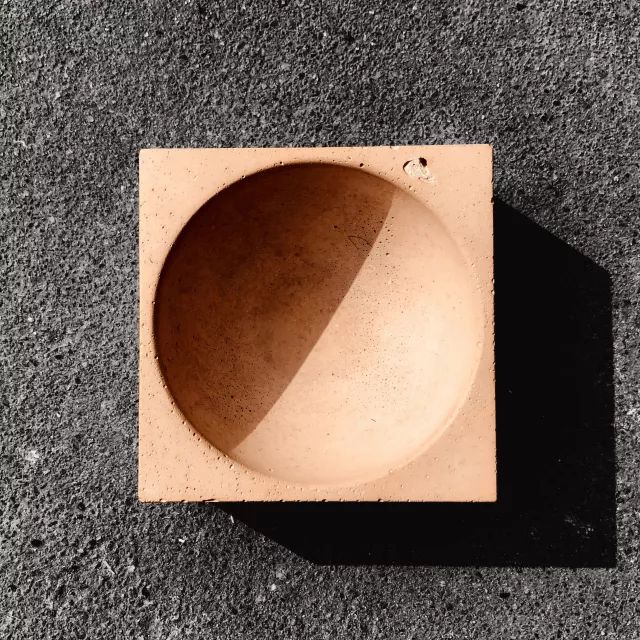
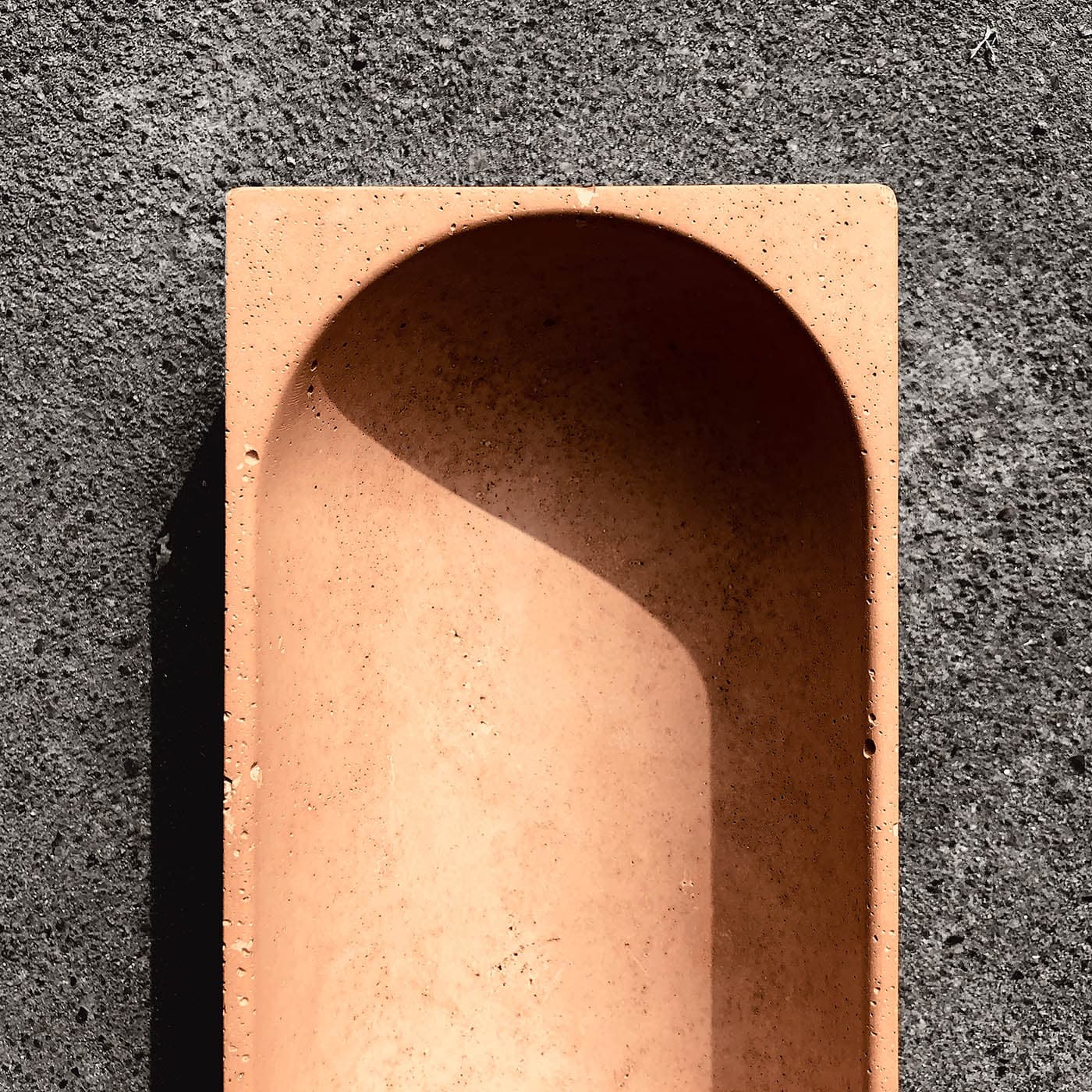
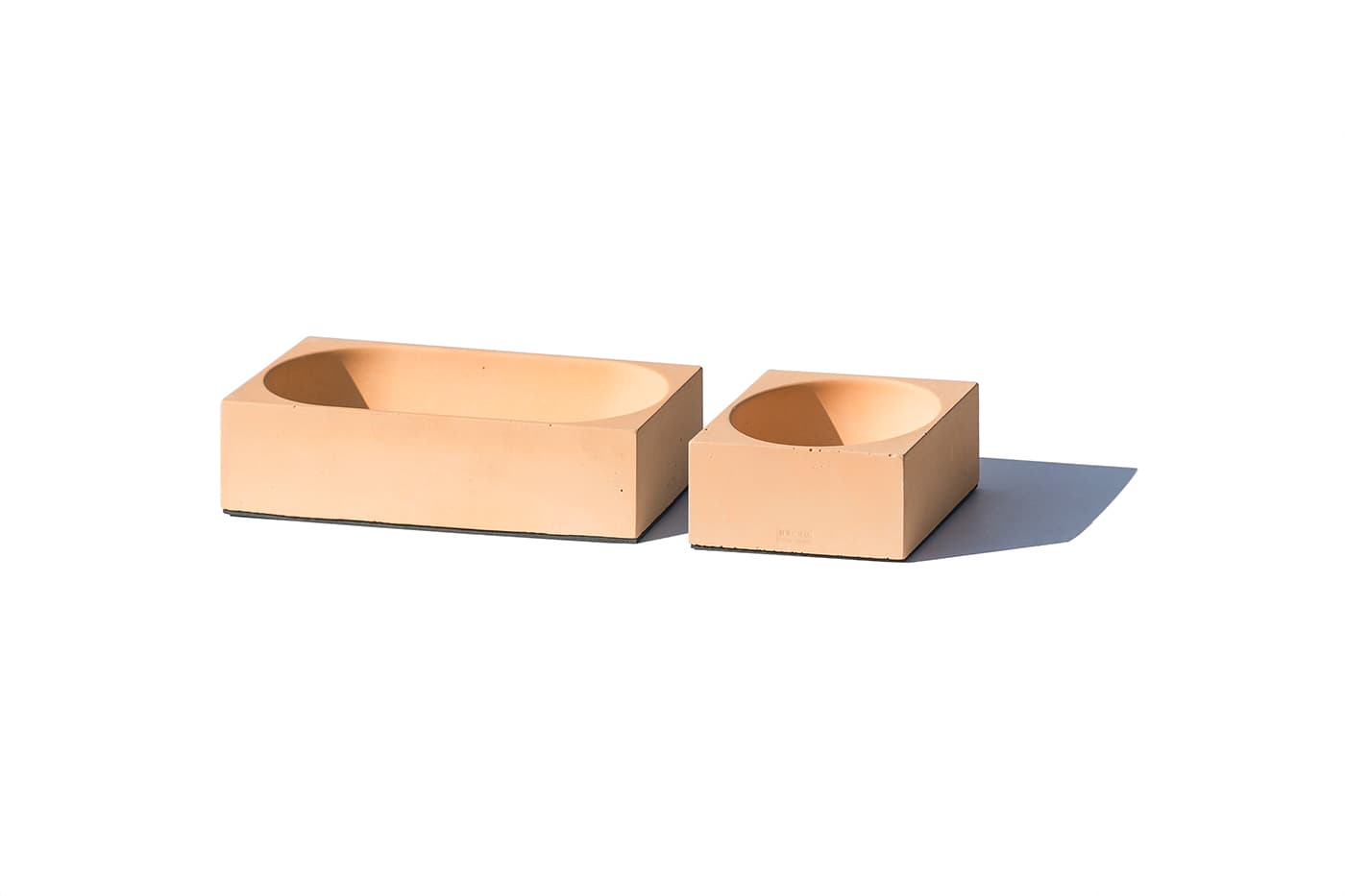
Commemorative Products
Material: Waste undergroung soil of Guangzhou Metro, Vegetable fiber
Size: 80 x 80 x H40 / 80 x 160 x H40 mm
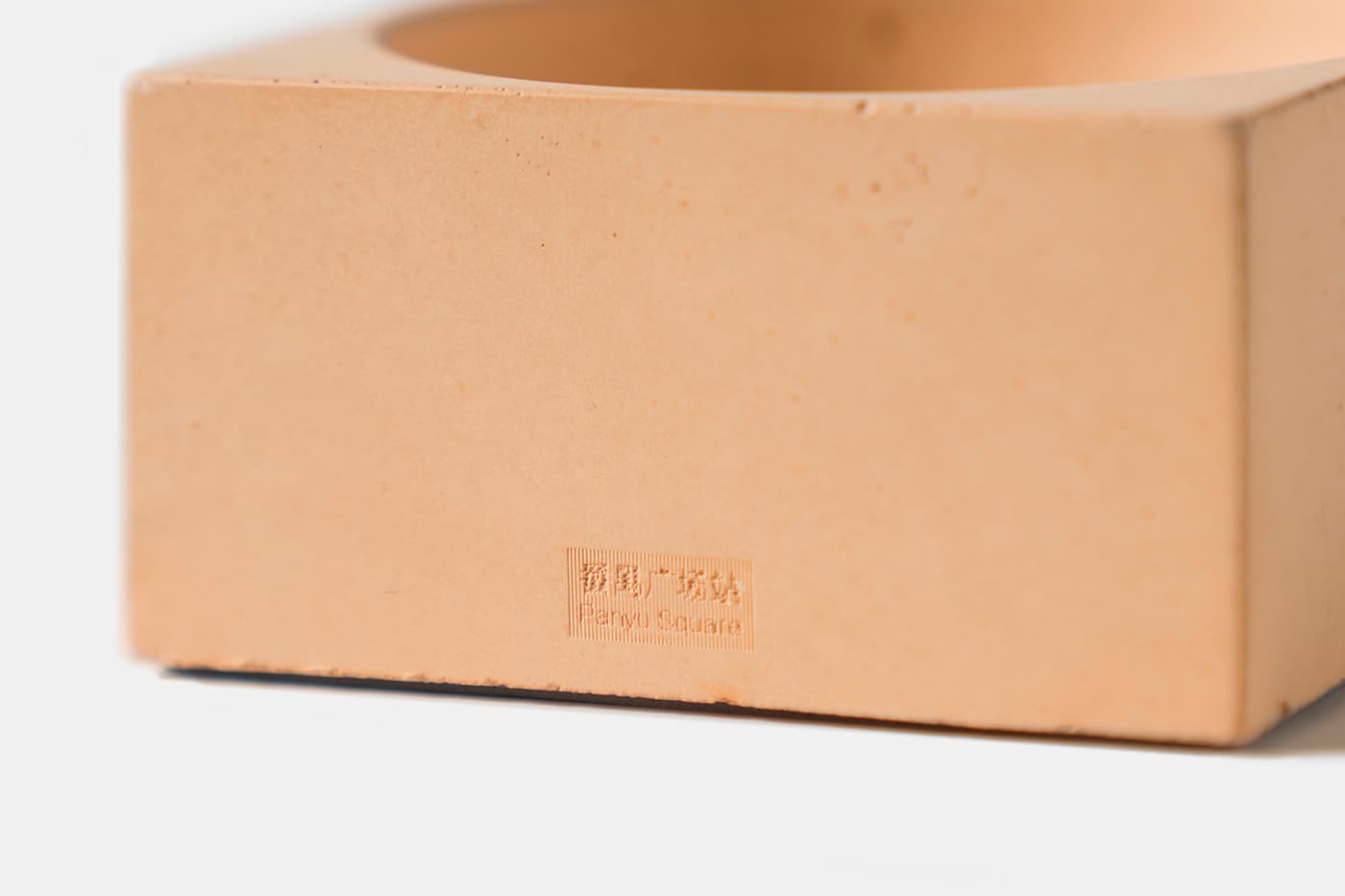
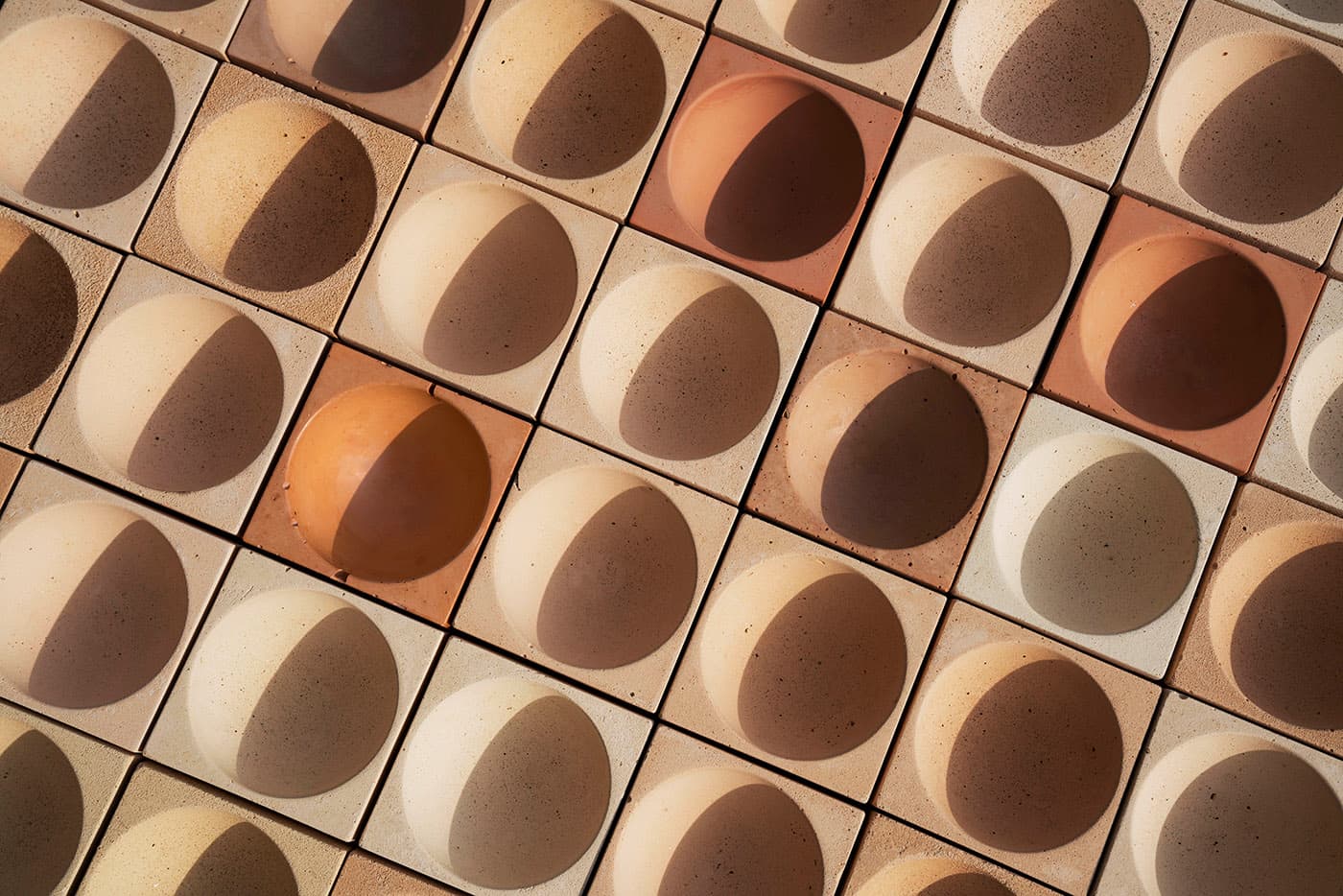
We renounced the use of more tenacious yet non-degradable plastic fibers but adhere to the use of more easily degradable plant fibers combined with gelatinized minerals. We adopt the use of raw earth technology during production; the no-firing production process can reduce the secondary damage to the nature. Out of our pursuit of authenticity and the natural look of materials, we retain the natural coarse beauty of soil in the texture.
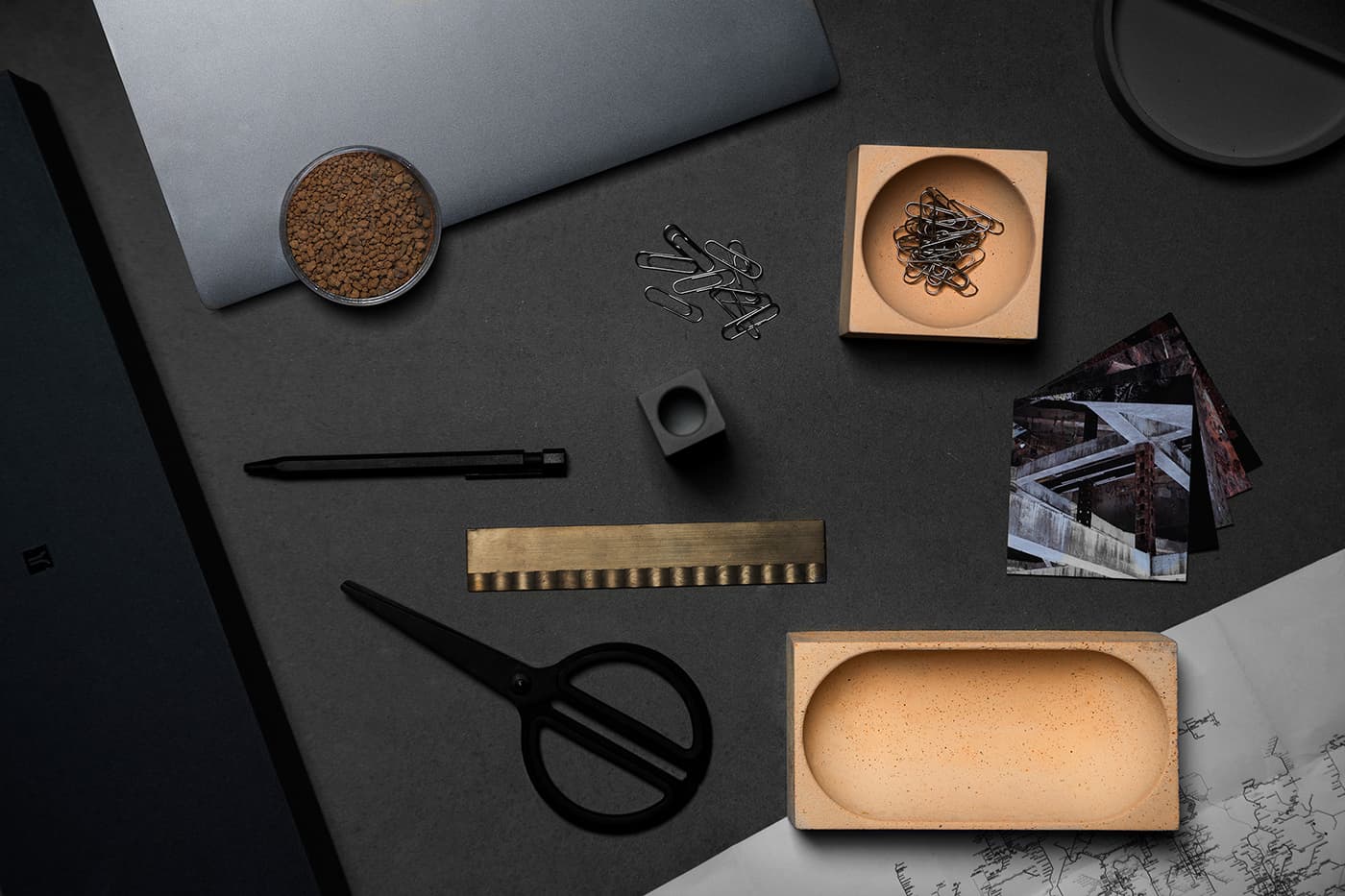
Renewable soil material, a piece of urban memory
Reclaiming and utilizing the disposed soil material and causing no harm to nature are just some of our basic principles; we are more concerned about how the soil wastes, who witness and record the urban underground space construction, should be returned to the building of modern social civilization.
The commemorative product of Guangzhou metro soil material regeneration has given the soil wastes new lives by letting them become part of our daily lives in the form of utensils and participate in the building of the contemporary values of the metro culture. From the beautiful forms to the emotion connections, from single individual to the whole view of human society, we help soil wastes to connect with the world again with dignity and value.
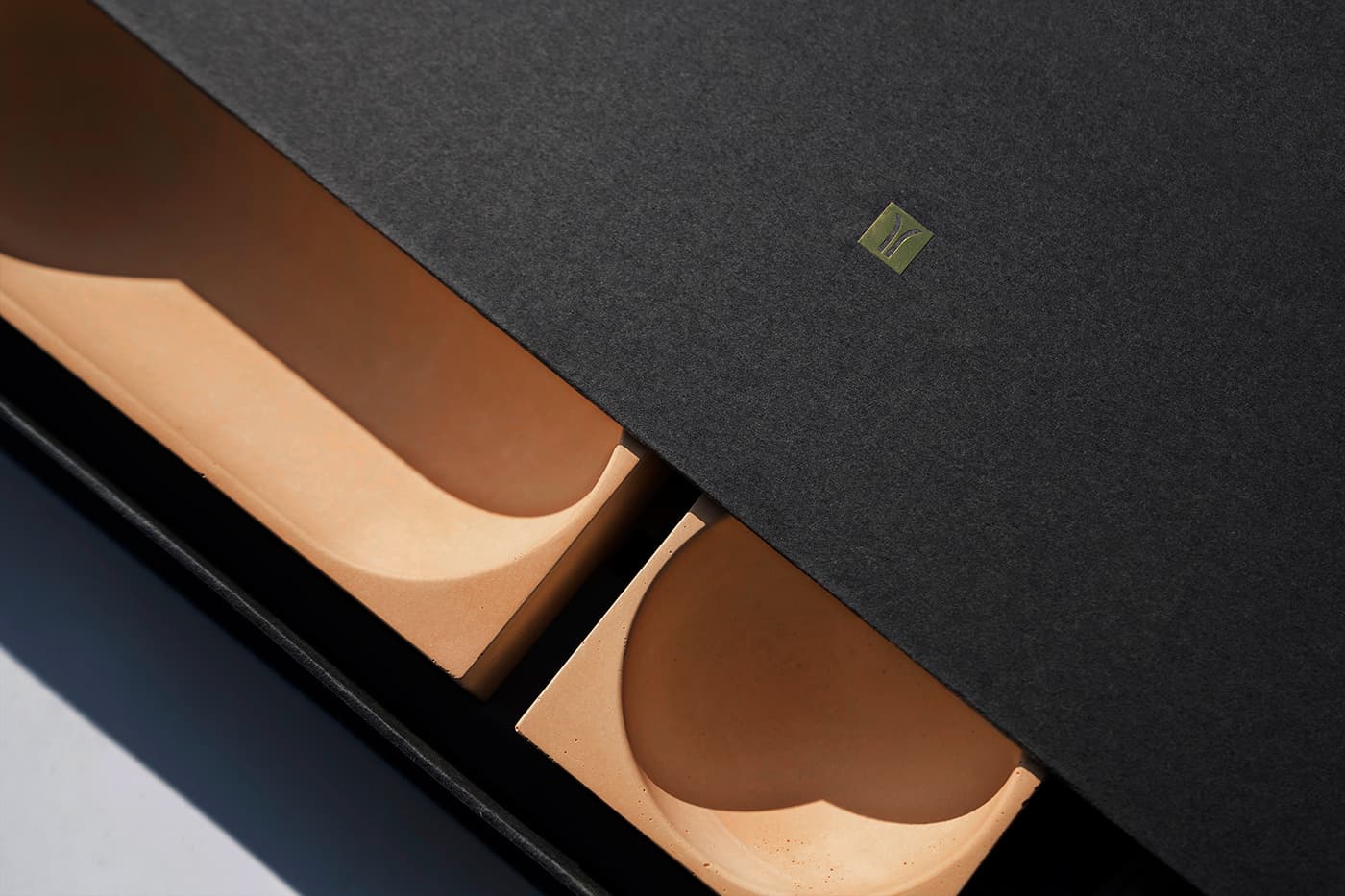
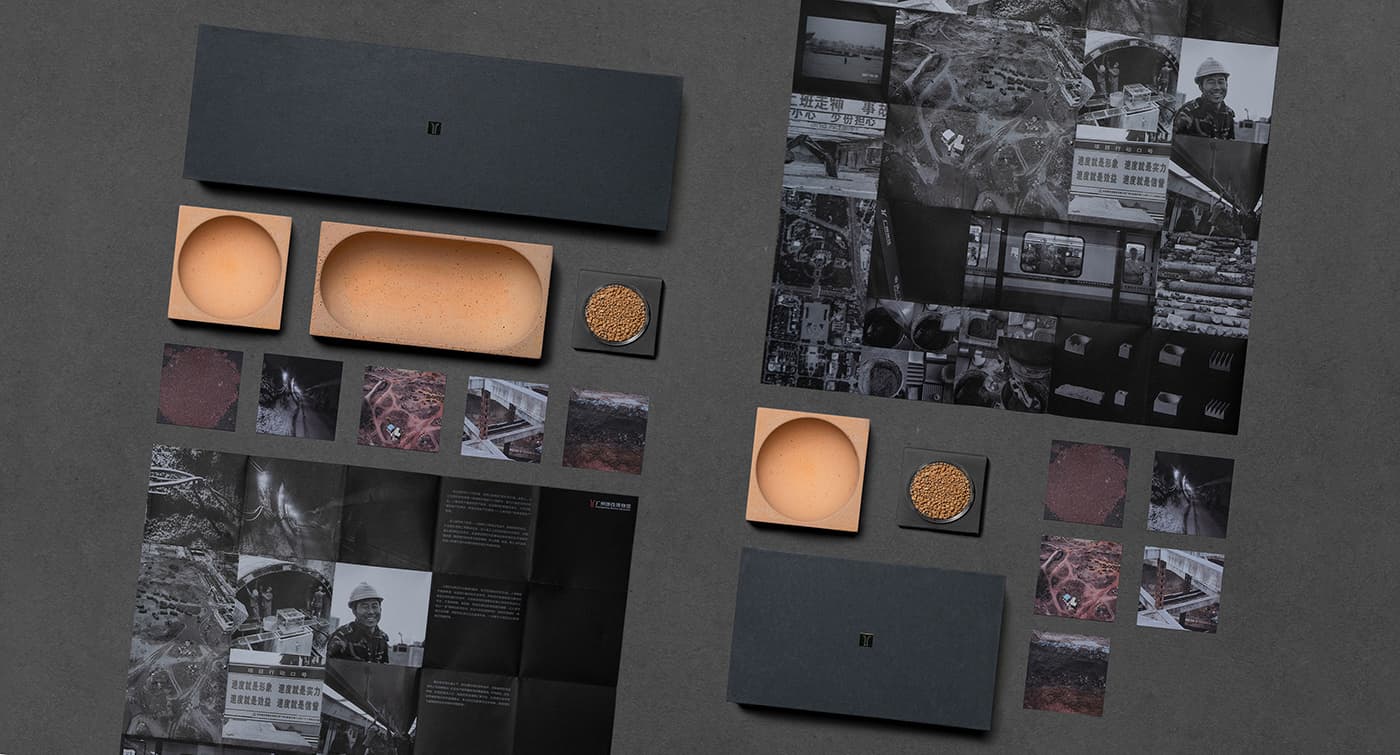

- Contact
+8620 8977 0506
- Press
press@bentudesign.com
- Enquiry & Sales
info@bentudesign.com
